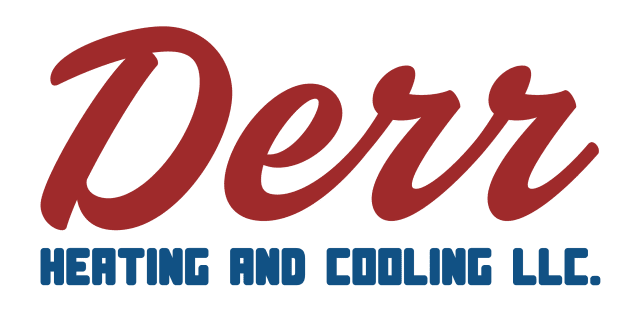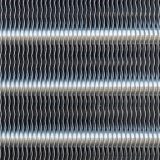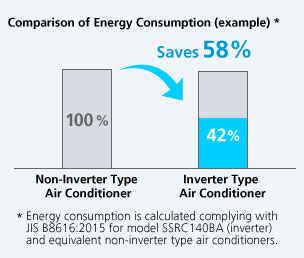
Energy Efficiency: The Power of Precision
Inverter air conditioners represent a significant leap forward in energy efficiency. Traditional ACs operate at full capacity until reaching the desired temperature, then shut off completely until the temperature rises again – similar to driving a car by alternating between full acceleration and braking. This creates significant energy waste in the start-up phase, when power consumption is highest.
In contrast, inverter technology works like a car with cruise control. Once the desired temperature is reached, the compressor slows down rather than stopping completely, maintaining precise temperature control while using only the minimum energy required. This variable-speed operation can reduce electricity consumption by 30-50% compared to conventional models.
The efficiency gains are particularly noticeable in real-world conditions, where cooling needs fluctuate throughout the day. During mild weather or at night when less cooling is required, inverter ACs can operate at as low as 10% of their maximum capacity, consuming proportionally less power.
Enhanced Comfort and PerformanceBeyond efficiency, inverter technology provides superior comfort through:
Temperature Stability: Conventional air conditioners create temperature swings of 2-4°F as they cycle on and off. Inverter units maintain temperature within ±0.5°F of the set point, creating a more comfortable environment.
Faster Initial Cooling: Inverter ACs can temporarily operate above their rated capacity (typically up to 120-130%) when first turned on, cooling rooms up to 30% faster than conventional units.
Quieter Operation: By eliminating the frequent starting and stopping of the compressor, inverter ACs produce significantly less noise. When operating at lower speeds, noise levels can be as much as 5-10 decibels lower than conventional units.
Better Humidity Control: The continuous operation of inverter ACs provides more consistent dehumidification, creating a more comfortable environment, particularly in humid climates.
Cost Considerations: The Long View
The cost analysis of inverter technology reveals a compelling value proposition, though with some nuances:
Higher Initial Investment: Inverter air conditioners typically cost 15-30% more upfront than conventional models with similar cooling capacity. This premium reflects the more sophisticated electronics and compressor technology.
Substantial Energy Savings: The significant reduction in energy consumption translates directly to lower utility bills, with monthly savings of 30-50% common. For households in hot climates with extended cooling seasons, these savings can be substantial.
Longer Lifespan: The reduced mechanical stress from eliminating frequent compressor starts extends the typical lifespan of inverter units. While conventional units may last 7-10 years, properly maintained inverter units often reach 12-15 years.
Return on Investment: Most homeowners recoup the additional upfront cost through energy savings within 2-4 years, depending on usage patterns and local electricity rates. Every year beyond this breakeven point represents pure savings.
Reduced Maintenance Costs: With fewer mechanical stresses and parts wearing out, inverter units typically require less frequent repairs and maintenance over their lifetime.
Environmental Impact
The benefits of inverter technology extend beyond individual households to broader environmental considerations:
- Reduced energy consumption means lower carbon emissions from power generation
- Many inverter units use more environmentally friendly refrigerants
- Longer lifespans mean less frequent disposal and replacement of units
The Bottom Line
Inverter air conditioner technology represents a win across multiple dimensions: enhanced comfort, significant energy savings, reduced environmental impact, and compelling long-term economics. And the same efficiencies and advanced technology that works to keep your home comfortably cool in the summer months, will keep your home at just the right warmth in the winter.
While the higher initial cost may give some consumers pause, the combination of superior performance and long-term savings makes inverter technology the clear choice for those taking a longer view of their cooling needs and expenses.
As energy costs continue to rise and environmental concerns grow, the case for inverter technology becomes even more compelling. For homeowners planning to stay in their homes for more than a few years, the investment in this advanced cooling technology is increasingly difficult to ignore. [DHC}





